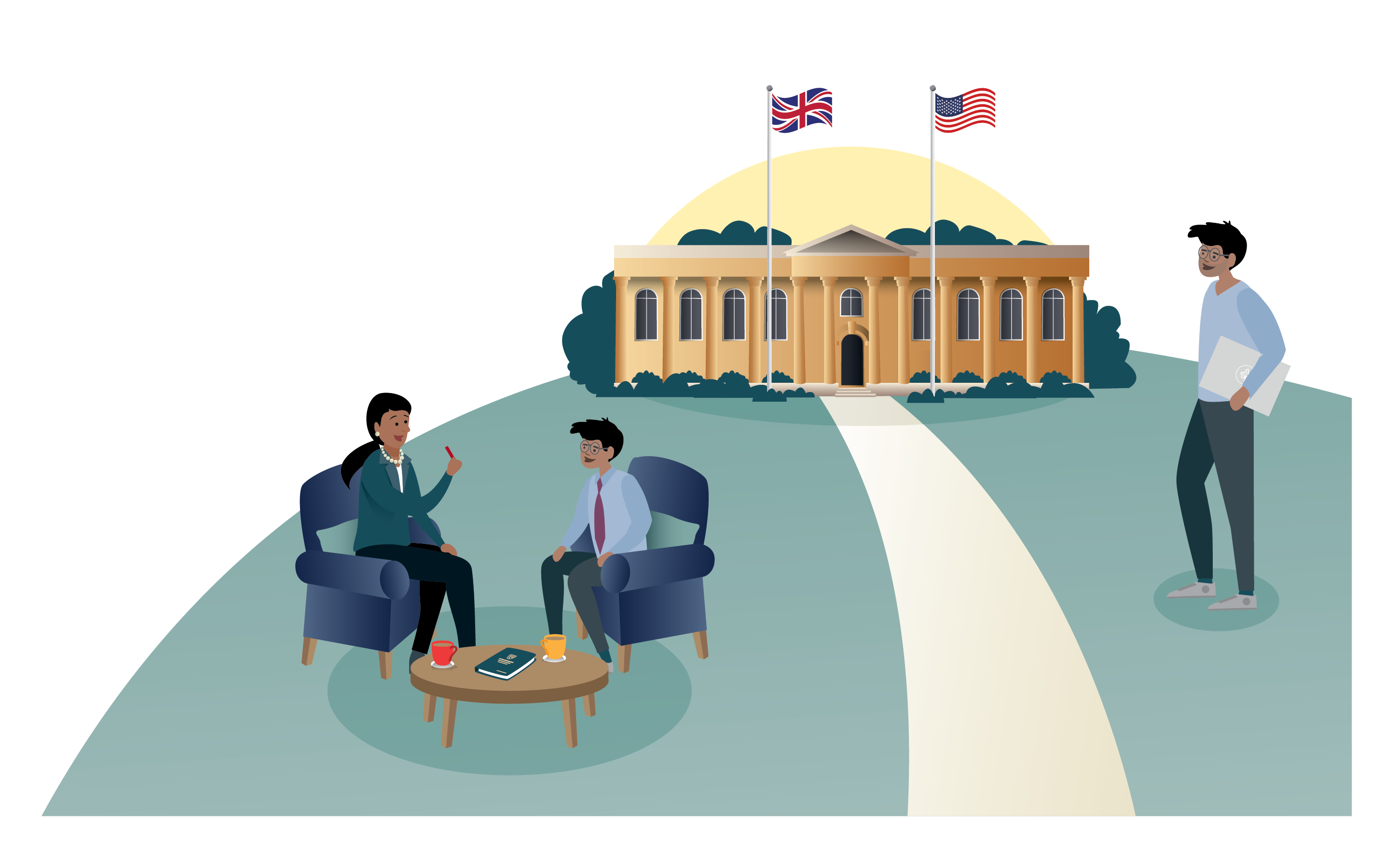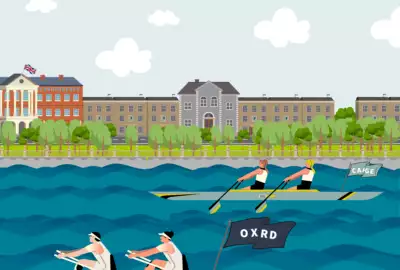Expert Insights
Key Supercurricular Activities for Aspiring Oxbridge Applicants
Published 18th July 2025 by Alastair

When it comes to applying to the University of Oxford or the University of Cambridge, academic excellence is just the starting point.
What truly distinguishes successful applicants is their passion for their subject, demonstrated through supercurricular activities. Unlike extracurriculars, which focus on activities outside your academic discipline, supercurriculars deepen your knowledge and understanding of your chosen subject beyond the school curriculum.
In this guide, we explore the most impactful supercurricular activities for Oxbridge applicants and explain how to choose and present them effectively.
Oxford and Cambridge admissions tutors look for intellectually curious students. Supercurricular engagement shows that you're genuinely motivated to explore your subject beyond the classroom. Whether you’re applying for History, Physics, or Modern Languages, your ability to reflect on and analyse independent learning can set you apart in both your personal statement and interviews.
In the next section, we will explore the top Supercurricular activities for Xxbridge applicants, including online courses, podcasts, public lectures, and more!
Books, academic articles, and journals are among the most traditional and respected forms of supercurricular engagement. Reading allows you to explore key debates, thinkers, and theories in your field.

Platforms like Coursera, FutureLearn, and edX offer free or low-cost university-level courses that allow students to explore subjects in more depth.
These Massive Open Online Courses (MOOCs) are an excellent way to demonstrate independent academic initiative. For instance, FutureLearn's "Introduction to Logic" by Stanford University or Coursera's "The Science of Well-Being" from Yale can provide structured, engaging material that goes well beyond the A-level syllabus. Choose a course that aligns closely with your intended degree and reflect on how it deepened your interest or changed your understanding of a key topic.
Podcasts and public lectures offer accessible yet intellectually rich ways to explore academic subjects in depth. For example, the BBC's In Our Time delves into topics ranging from classical philosophy to cutting-edge science, making it ideal for students applying to courses like History, Philosophy, or Physics. Similarly, The Life Scientific offers insight into the work and thinking of leading scientists, which can be particularly useful for STEM applicants seeking to explore thereal-world applications of their studies.
Attending public university lectures, many of which are freely available online through platforms like YouTube or university websites, demonstrates intellectual curiosity and initiative. Cambridge's Subject Masterclasses or Oxford's podcasts on iTunes U are excellent starting points. A lecture on political theory could spark a deeper interest in PPE, while a chemistry masterclass might reinforce a student's understanding of reaction mechanisms, potentially strengthening their interview performance.
These resources also offer strong talking points in interviews and personal statements. Reflecting on a specific lecture or podcast episode and connecting it to wider reading or your A-level studies shows critical thinking and academic engagement.
Participating in academic competitions is a powerful way to demonstrate enthusiasm, subject mastery, and a willingness to push beyond the curriculum. Essay competitions, such as those run by the John Locke Institute, Peterhouse College, or the Newnham College Essay Prize, allow humanities and social science applicants to hone their argumentation and critical thinking skills, both essential for Oxbridge interviews and written assessments.
For STEM students, Maths Olympiads or the UK Chemistry Olympiad can help develop problem-solving under pressure, showcasing the kind of analytical mindset prized by Oxbridge tutors. These activities not only provide material for your personal statement but can also form the basis of deep discussion during interviews, especially if you can reflect on what you learned or where you struggled.
Even if you don't win, participation alone speaks volumes about your intellectual ambition.

Attending academic events and cultural institutions like the British Museum, the Science Museum, or the Royal Institution offers opportunities to engage with your subject in a new, often more visual or interactive format. For example, a History applicant might reflect on the interpretation of artefacts at the Imperial War Museum, while an aspiring Art Historian could critically analyse an exhibition at the Tate Modern.
Science and engineering applicants can benefit from attending public science lectures at the Royal Society or interactive exhibits at science centres such as the Centre of the Cell in London. These experiences help ground abstract concepts in real-world contexts and provide rich, reflective content for personal statements.
Applicants for subjects like Geography, Politics, and Anthropology can gain unique insights through exhibitions related to climate change, migration, or colonial history, sparking deeper exploration and independent research.
The key is not just attending but critically engaging—ask yourself what the event taught you, how it connects to your curriculum or wider reading, and whether it challenged your existing ideas. These reflections make for excellent interview discussion points and signal genuine intellectual curiosity.
Gaining real-world experience and working on independent projects is one of the most powerful ways to demonstrate a deep, practical interest in your subject. Below are examples across a variety of disciplines:
Medicine: Shadowing a GP, volunteering at a hospital or care home, or attending virtual healthcare conferences can provide invaluable insights into the realities of medical practice. Reflecting on patient care, ethical dilemmas, or multidisciplinary teamwork not only strengthens your personal statement but also prepares you for the ethical and situational questions often encountered during Oxbridge interviews.
Law: Attend court proceedings (in person or online), explore landmark legal cases, or write your own commentary on current legal debates. You might also volunteer with legal charities or citizen advice centres. These experiences offer material for discussion in interviews and can help build the analytical reasoning expected by admissions tutors.
Engineering: Design and build a personal project—such as a bridge model, a basic robotic arm, or a Raspberry Pi home automation setup—and document your design process and problem-solving journey. This shows initiative, creativity, and applied knowledge that’s highly regarded in Oxbridge engineering admissions.
Computer Science: Learn a programming language like Python, contribute to open-source projects, or build a basic app or game. Reflecting on algorithmic logic or UI/UX choices demonstrates a thoughtful and engaged approach to computing beyond the classroom.
Architecture: Keep a sketchbook of architectural observations, visit notable buildings, or complete short design projects. Use tools like SketchUp to model structures and reflect on aesthetics, function, and structure in your portfolio.
Economics and Politics: Conduct independent research on a policy issue, write a blog analysing global economic trends, or simulate debates on political philosophy. Reading white papers, economic journals, or attending model UN conferences also shows high-level engagement.
Psychology: Volunteer in community mental health settings, conduct informal surveys or small-scale experiments (ethically, of course), and read case studies or classic texts like those by Freud, Piaget, or Kahneman.
These subject-specific projects demonstrate that you're thinking critically and independently about your chosen field—key attributes Oxbridge is looking for.
Need Help Finding Opportunities?
At Ivy Education, our expert consultants offer personalised guidance on sourcing work placements, structuring independent projects, and identifying subject-aligned experiences that stand out. Contact us to start building a bespoke supercurricular plan that will strengthen your Oxbridge application and CV.
While general advice is useful, tailoring your supercurricular activities to your chosen subject is crucial. Here’s a wider selection of subject-specific ideas to help guide your preparation:
You don’t need a long list of activities. In fact, a few well-chosen and deeply explored supercurriculars are more impressive than a scattergun approach. Admissions tutors value depth, critical thinking, and genuine engagement.
Reddit threads and student forums often reflect this reality: successful applicants usually mention three or four high-quality supercurriculars that they can discuss in detail.

Personal Statement: Your personal statement should weave supercurricular activities into a coherent narrative that shows your passion, intellectual maturity, and readiness for rigorous academic study. Mention specific activities and, crucially, reflect on what you gained from them. For example, instead of saying "I read Sapiens," try: "Reading Sapiens challenged my understanding of linear human progress and led me to explore contrasting perspectives through Guns, Germs, and Steel."
Tailor your reflections to your chosen course. A Maths applicant might write: "Tackling STEP problems helped me develop a more methodical approach to abstract reasoning, reinforcing my interest in pure mathematics." Meanwhile, an aspiring historian might explain how a podcast on the Cold War inspired independent research into Soviet foreign policy.
Use transitions to connect experiences: "This reading inspired me to attend a lecture at..." or "My interest in this topic deepened further when I wrote an essay exploring..." The goal is to show continuity, growth, and self-motivated inquiry.
Interviews: Your supercurriculars are likely to form the backbone of your Oxbridge interview. Interviewers often pick questions directly from personal statements, so anything you mention should be something you're confident discussing. Expect to be asked why you found a topic interesting, what you learned, and whether it changed your perspective.
For instance, a Philosophy applicant referencing Plato’s Republic may be asked to compare its ideas with modern political systems. A Biology applicant who completed a MOOC on genetics might be asked to explain CRISPR in layman’s terms or critique an ethical dilemma.
Practising how to verbalise your thoughts on these experiences can help you respond with clarity and confidence.
Top Tips:

Supercurricular activities are not just Oxbridge buzzwords; they are an essential part of showing your passion and suitability for your chosen subject. By choosing activities that genuinely interest you and engaging with them critically, you can build a compelling academic profile that resonates with admissions tutors.
At Ivy Education, we specialise in guiding students through every step of their Oxbridge application journey. If you’d like tailored support in selecting and presenting your supercurriculars, get in touch with one of our expert consultants.
Supercurricular activities are academic pursuits beyond the classroom that deepen your understanding of your chosen subject, such as wider reading, online courses, lectures, competitions, and work experience.
Aim for 3–5 deeply explored activities that show genuine engagement and intellectual growth rather than a long list of shallow experiences. Quality matters more than quantity.
he best supercurriculars align with your subject and demonstrate independent thinking. Examples include essay competitions, university-level reading, MOOCs (Massive Open Online Courses), lectures, and independent research projects.
Be specific: describe what you did, what you learned, and how it deepened your interest in the subject. Link activities to your academic growth and course choice.
Yes. Interviewers often ask about supercurriculars you've mentioned in your personal statement. Being able to discuss them in depth shows critical thinking and enthusiasm.
Check platforms like FutureLearn, edX, Coursera, university websites, podcasts, museums, and competition sites. Ivy Education also offers consultancy services to help you find and plan bespoke supercurricular pathways.
Ideally, start in Year 11 or Year 12. This gives you enough time to explore topics meaningfully and reflect on them before writing your personal statement.














